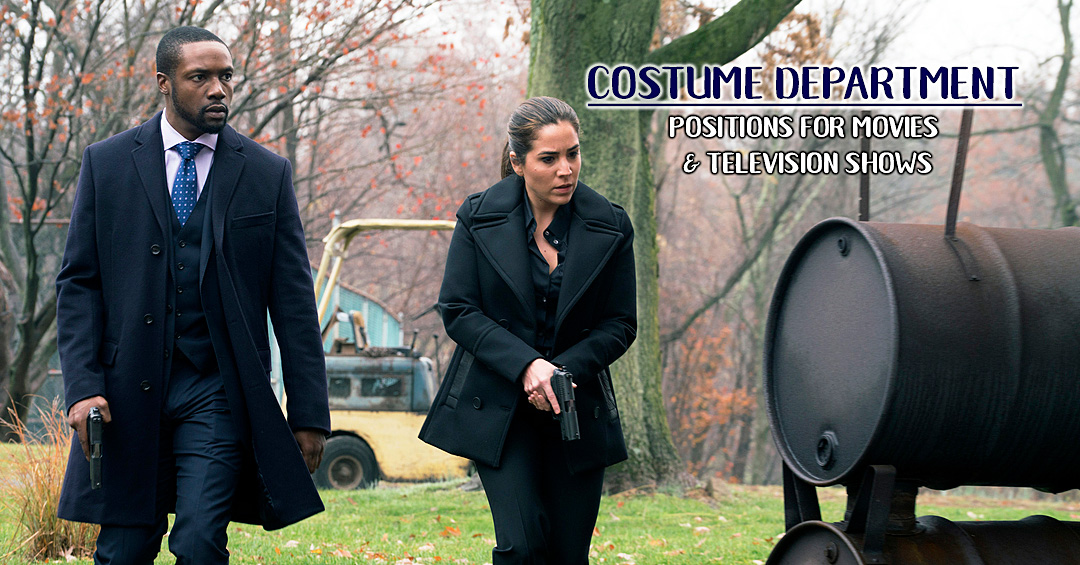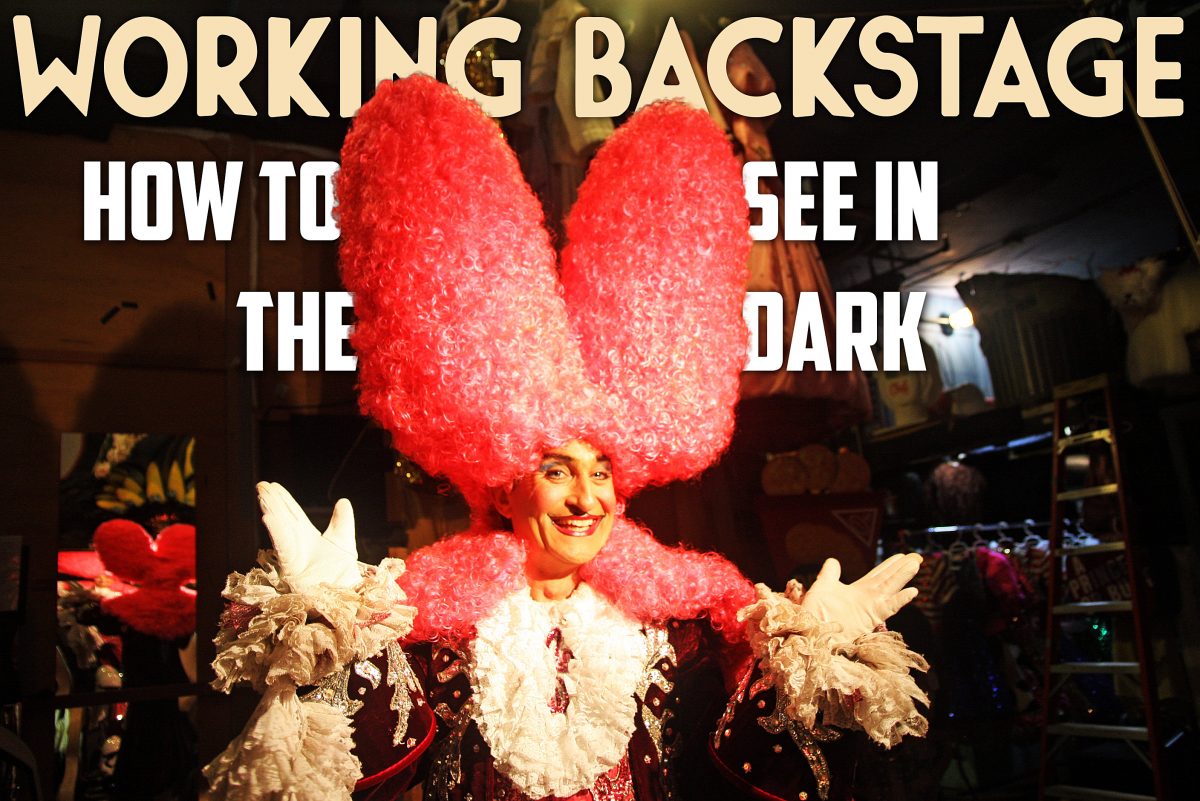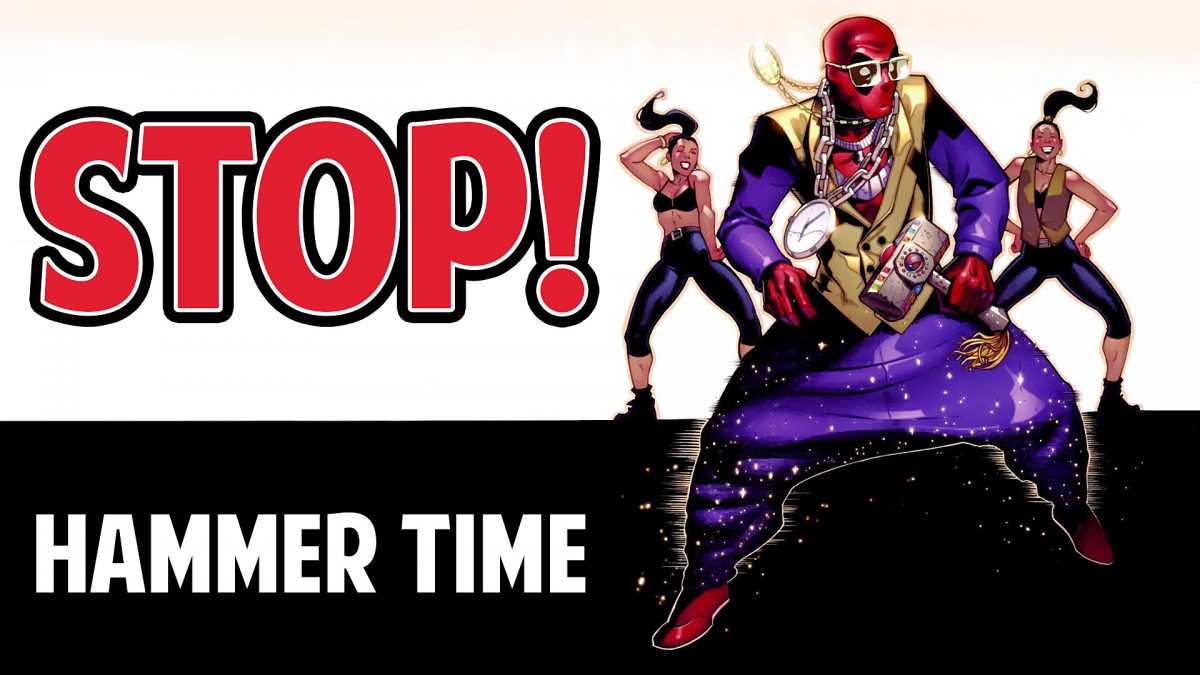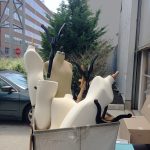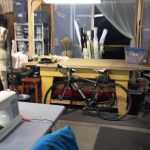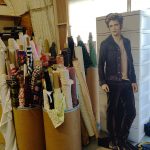Last week, I wrote about how it takes a whole team of individuals to make a television show or movie, often more than most people realize. Then I got to thinking about all the conversations I’ve had throughout my life trying to explain to family, friends, acquaintances and sometimes strangers, what I do at work and what others in my department do.
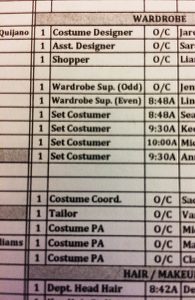
One of the daily call sheets for Blindspot which lists the positions with call time (time to report to work). O/C means on call and is what is used for those who do not need to be on the actual shooting set.
Here’s a list of some common positions found in costume and wardrobe departments of films and television shows.
But first, the difference between the costume and wardrobe departments. Theses terms are basically interchangeable but, if a dividing line were to be drawn it would separate the costume and wardrobe departments by union locals.
The labor union for theatre, film, television and live events, founded in 1893, is IATSE or, the International Alliance of Theatrical Stage Employees, Moving Picture Technicians, Artists and Allied Crafts of the United States, its Territories and Canada.
Designers, assistant designers, shoppers and coordinators are normally members of Locals 829 (United Scenic Artists) or 892 (Costume Designers Guild). There are various locals across the country that are wardrobe specific. In New York City, the wardrobe local is 764.
Common costume and wardrobe positions on movies and television shows
Design/Costume Department:
Costume Designer
This is fairly self-explanatory. The costume designer is responsible for developing the look and feel of a show. They usually spend time talking with producers or the creators of a show, reading scripts and discussing character with the actors and actresses, as well as researching. They conduct fittings and manage the entire department.
Assistant Costume Designer
Again, pretty self-explanatory. Often, the assistant designer is the one who dresses the background actors. They also often deal with the budgets.
Shopper
The shopper spends his or her day out in the world, shopping. Being a shopper in NYC is completely different than being a shopper anywhere else because well, you can’t get around NYC efficiently in a car. NYC shoppers spend a lot of time walking, schlepping and taking the subway. There’s often a costume department driver who will meet them to pick up purchases.
Wardrobe Department (764 positions):
Wardrobe Supervisor
This position is the department head. He or she manages the day-to-day execution of the designers vision. They are responsible for making sure everything runs smoothly on set. They spend a lot of time looking ahead and anticipating problems and catastrophes before they arise. They are also very good at putting out fires.
Set Costumer
A set costumer takes care of the actors on set. He or she is responsible for continuity (making sure the correct outfit is worn at the correct time in the proper manner). Shows are rarely, if ever, filmed in order. A set costumer watches during filming and makes adjustments as needed. He or she pays attention to things like: How many buttons are buttoned, are the sleeves of the shirt supposed to be rolled, should that bag be over the right or left shoulder.
There is usually more than one set costumer on a show. Some actors have personal set costumers who only take care of them but most television shows don’t have the budget for this. Some high paid, “famous” actors have a personal costumer written into their contracts.
In Europe, a set costumer is often called a stand by costumer.
Production Assistant
Every department tends to have a production assistants who are usually people just starting out in the business. They do all sorts of things. In the world of television they spend a lot of time returning unused clothing and organizing receipts.
Costume Coordinator
I always think of the Costume Coordinator as the glue that holds the entire department together. They should really be paid more money than what they are.
They are the accountants of the department, the phone call makers, the calmer of nerves, the birthday party planners, the detectives, the soothsayers, the joke makers, the ice cream and alcohol buyers, the lunatic whisperers and the magicians. A costume department with a shoddy coordinator will most certainly fall apart at some point.
On Blindspot, we are very lucky to have an amazing coordinator named Sade.
Tailor
Most contemporary television shows have one full time tailor who is responsible for alterations and clothing construction. Big, costume heavy shows often have a full in house costume shop.

